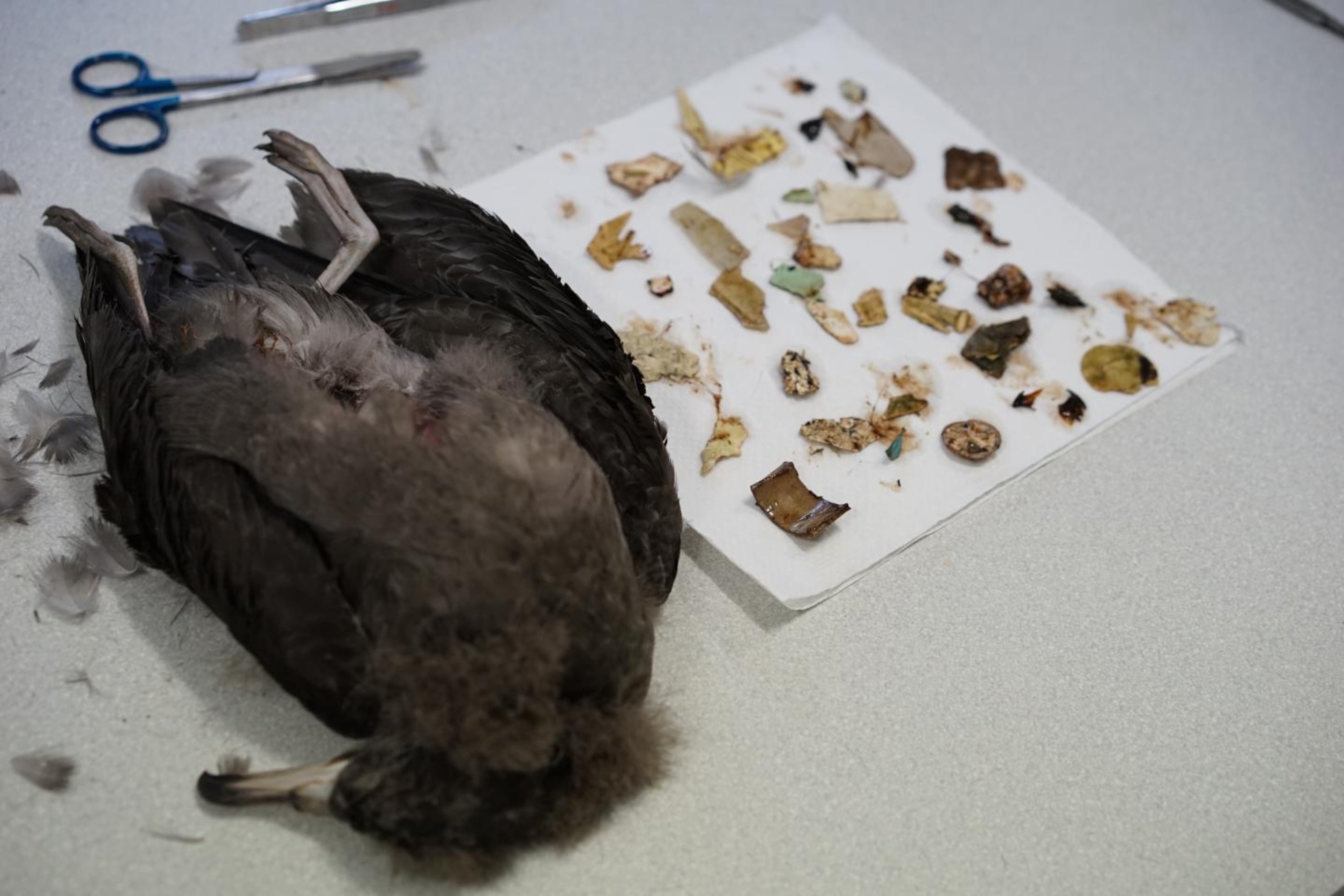
Seabirds that eat plastic—and live—have major health problems
One of the only studies looking at the health effects of plastic ingestion on living seabirds finds that a few pieces wreak havok.
Seabirds that ingest any amount of plastic have significant health troubles, a new study has found. Most research on the impacts of plastic on marine life has been focused on mortality; this is one of the first on the non-lethal impacts of plastic on living creatures.
The young birds in the study had impaired kidney function and raised cholesterol levels, plus reduced body mass, wing length, head and bill length.
“A seabird might look fine but it can’t tell you it’s unwell or suffering,” says Jennifer Lavers of the Institute for Marine and Antarctic Studies at University of Tasmania in Australia. Lavers is lead author of the study in Environmental Science & Technology looking at the non-lethal impacts of plastic ingestion.
“We decided to treat them like humans and do a blood panel to find out how they’re doing,” Lavers says in an interview.
Seabirds are not doing well in general. They are declining faster than any other bird group and plastics in the oceans are believed to be one cause.
“Seabirds are the canary in the coal mine for the health of oceans. We should be paying close attention,” she says.
Lavers and colleagues have spent years studying the impacts of plastics on the health of flesh-footed shearwaters (Ardenna carneipes) at their largest breeding colony located on remote Lord Howe Island, located 375 miles off the eastern coast of Australia. The flesh-footed shearwater is a medium-sized seabird named for its pale, pinkish feet that breeds in southern Australia and northern New Zealand. Population numbers have fallen 29 percent in recent years.
Like nearly all seabirds, shearwaters are only on land to breed and raise young. The adults go out to hunt for fish and squid at night, returning to their burrows to feed the waiting chicks. But since the oceans are increasingly contaminated with plastic debris—8 to 9 million tons added every year—the adults mistakenly feed plastic bottle tops and other plastic fragments to their young. Some years 90 percent of shearwater fledglings were found to have at least one piece of plastic in their stomachs.
Toxic meals
Plastic is inherently toxic and becomes increasingly hazardous over time as it accumulates pollutants from the surrounding marine environment, according to the study. Once ingested, the absorbed toxins leach into the animal’s bloodstream, Lavers says. While a chick with 200 pieces of plastic in it will not survive, researchers wondered what about the health impacts from ingesting a few pieces.
“Not many seabirds have stomachs stuffed with plastic; it’s usually more like four or five pieces,” she says.
Researchers used a safe, non-invasive technique to empty the stomachs of the chicks to assess their contents. They also took blood samples that were then flown to a lab where a blood panel was done to count red and white blood cells, measure calcium, cholesterol, uric acid levels, and other indicators of overall health.

The chicks with plastic had reduced body mass and, wing length, as well as shorter head and bill length. Just a single piece of plastic was enough to cause higher cholesterol levels, said co-author Alex Bond, senior curator of birds at the Natural History Museum in London.
High levels of cholesterol are bad for humans and cause circulatory problems, but no one knows what it means for shearwaters, Bond said in a press release. The tests also showed that chicks with plastic had lower dissolved calcium and more uric acid, which is associated with impaired kidney function in humans.
“This can have some pretty significant consequences for a bird that has to fly unaided to the Sea of Japan when they leave the island,” says Bond.
At last count 2249 marine species are known to be impacted by plastics, mostly by ingestion. In 1995 it was only 263 species, said Lavers.
“The data is alarming. It is not a big leap to think that what’s happening to wildlife might be happening to us,” she says.
Matt Savoca is a researcher at the Hopkins Marine Station of Stanford University who studies why seabirds eat plastics. "This is a nicely controlled study because it compares birds in the wild under the same conditions, with the only difference being some have ingested plastics and some have not," he says.
The public only hears about birds choking on plastic or dying with stomachs stuffed with plastics, said Savoca, but the reality is that most only eat a few pieces. That doesn’t mean they’re not affected, which this study has shown.
“I don’t think anyone had any idea plastic could increase cholesterol levels in seabirds,” he says.
So why do seabirds eat plastics? They smell good, especially to shearwaters, he said, based on his research.
“Seabirds are pretty amazing," he says.